Fahe Annual Meeting 2022
Since Fahe Members last convened for our Network’s Annual Meeting in 2021, we’ve seen historic federal action on everything from pandemic economic recovery to a once-in-a-generation investment in infrastructure and essential public services.
Even as communities across Appalachia continue to grapple with pricey housing markets, strained laborforces, economic displacement, and beleaguered public health institutions in the aftermath of COVID-19, a growing awareness of these challenges seems to be taking hold. Most importantly, the real-world obstacles that Fahe Members have navigated in our own back yards before and during the pandemic may even be garnering the long-overdue attention of policymakers, program-designers, and stakeholders throughout the country.
As these historic factors converge, 2022 and the years that follow promise to be a moment of extraordinary opportunity—for our country, our region, and especially our Network. Whether our nation can rise to meet this moment will depend on the commitment of local leaders, practitioners, community turnaround experts, and change-agents to harness on-the-ground relationships and insights and ensure that resources are channeled to where they’re needed most. It will rely on building upon past experiences, proven best practices, and shared knowledge to leverage our strength in numbers and capture public momentum, transforming strategy and investments into tangible, lasting impact. Most of all, it will oblige each of us in all of our communities to demonstrate our collective willpower to choose action in a moment that demands leadership and eagerly embrace the responsibility for modeling the change we seek to see in Appalachia, one neighborhood at a time.

Schedule
All times are EST.
Tuesday, September 20
11 AM
Meadowview Foyer
Check-in for Fahe Members
Member Town Hall Meeting: Updates on Flood-Impacted Areas/Disaster Response
12 PM
Grand Salon
Lunch
1–4 PM
Cattails Ballroom
Member Meeting, Town Hall
4 PM
Registration for Guests/Hotel Check-in for Members & Guests
6 PM
Cattails Ballroom
Opening Reception and Dinner: Keynote Speaker Dr. William H. (Bill) Turner
Wednesday, September 21
7 AM
Grand Salon
Networking Breakfast
8:30–9 AM
Cattails Ballroom
Welcome and Conference Overview: Meeting the Moment
9–10 AM
Cattails Ballroom
Plenary Session: Regional Workforce Panel
- Chris Martin, CEO, Knoxville Leadership Foundation
- Justin Burch , National Director, Workforce Development, Rural LISC
- Ken Mall, Managing Director Workforce Consulting, EDSI
- Moderator: John Niederman, Consultant
10–10:15 AM
Cattails Foyer
Break
10:15–11:15 AM
Cattails Ballroom
Concrete Solutions Panel
- Cathy R. Glover, Deputy Administrator Single Family Housing, USDA
- Robin Keegan, Deputy Asst. Secretary for Economic Development, HUD
- Lindy Turner, Executive Director, Clinch-Powell RC&D
- Scott McReynolds, Executive Director, Housing Development Alliance
- Duane Yoder, President, Garrett County Community Action Committee
- Moderator: Jackie Mayo, Pres. & CEO, HomeSource East Tennessee; Fahe Board Chair
11:15 AM–12 PM
Cattails Ballroom
Tour Introductions and Overview
12 PM
Grand Salon
Boxed Lunches
12:30–5 PM
Tours of Local Member Projects
- Bristol Rehabilitation & Housing Authority – Bristol, VA Envision Center
- Appalachia Service Project – Johnson City, TN
- Kingsport Housing Redevelopment Authority, Kingsport, TN
- Eastern Eight Community Development Corp., Johnson City, TN
6:30 PM
Cattails Foyer/Outdoors
Reception and Family & Friends Reunion Dinner
Thursday, September 22
7 AM
Grand Salon
Networking Breakfast
8:30–9:45 AM
Cattails Ballroom
Meeting the Moment in Areas of Persistent Poverty
- Dana Bazerra, President, Heron Foundation
- Justin Maxson, Senior Fellow, Amalgamated Foundation
- Moderator: Brett Theodos, Senior Fellow & Director of the Community Economic Development Hub, Urban Institute
9:45–10 AM
Cattails Foyer
Break & Move
10:15–11:15 AM
Breakout Sessions
- HOME: Health Outcomes Meets Equity (Meadowview C&D)
- Communicate Your Impact (Meadowview A)
- Community Foundations at Work
- (Meadowview B)
11 AM
Break & Checkout
12 PM–1:30 PM
Cattails Ballroom
Lunch & Closing

Speakers

William H. (Bill) Turner
Bill Turner has focused his career on people of color in the Appalachian Region. Among the first to combine interests in the fields of African American and Appalachian Studies, Turner has published extensively in national newspapers, refereed academic journals, and books on the black experience in Appalachia. He co-edited the path-breaking textbook, Blacks in Appalachia (1985) and thematic essays on Black Appalachians in the Encyclopedia of Southern Culture, and the Encyclopedia of Appalachia. Turner also worked as research associate to Roots author Alex Haley, who said in 1990, “Bill knows more about black people in the mountains of the South than anyone in the world.” Bill, a freelance writer, has published in the Huffington Post and dozens of African American newspapers, e.g., the Winston-Salem Chronicle and has held positions such as Dean of Arts and Sciences and Interim President, Kentucky State University, Vice President for Diversity, Equity, and Inclusion at the University of Kentucky, and Distinguished Professor of Appalachian Studies and Regional Ambassador at Berea College. He serves on the boards of the National Trust for the Humanities – the fundraising arm of the National Endowment for the Humanities and the Great Smoky Mountains Association and is the Scholar-in-Residence – Appalachian African American Cultural Center (Pennington Gap, Virginia).
Bill, the fifth of ten children, was born in 1946 in Lynch – Harlan County, Kentucky, Both grandfathers, father, four uncles and his older brother were coal miners in Southwest Virginia, Southern West Virginia, and Eastern Kentucky. His mother was born in Harlan County in 1924, his father William Earl, in Coeburn – Wise County — Virginia in 1917. Bill was awarded his bachelor’s degree from Kentucky (1968) and the doctorate in sociology and anthropology at Notre Dame (1975). Among the honors Turner has received: in 1994 the Christian Appalachian Project named him its “Person of the Year,” and Notre Dame University named him a “Distinguished Alumni Exemplar” in 2006. In 2007, he was inducted into the Kentucky Civil Rights Hall of Fame, and, in 2008, he was recognized as the Rev. Dr. Martin Luther King Citizen of the Year, for “advocating for the rights and expanded educational opportunities for people in Appalachian Kentucky.” In 2009, the Appalachian Studies Association (ASA) honored Bill for a lifetime of service to the Appalachian region. In 2020, Turner was awarded the Honorary Doctorate of Humane Letters by the University of North Carolina-Asheville for “unparalleled service to the Appalachian Region.” The College of Arts and Sciences of the University of Kentucky inducted Bill into its Hall of Fame in 2021. The Distinguished 400 Award was conferred on Bill on the 8th of August, 2022 by the 400 Years (1619-2019) of African American History Commission, a program of the US Department of Interior and the National Park Service.
The Harlan Renaissance: Stories of Black Life in Appalachian Coal Towns, the title of Turner’s latest book (2021) is described as “A warm and insightful memoir of Black life in Appalachia’s coal camps that offers a bounty of correctives to the persistent myth that all mountain people are white, and all poverty is self-made.” The book won the 2021 Award for Book of the Year, conferred by the Appalachian Studies Association and Berea College. Turner’s book is short-listed for the Stone Book Award presented by the Museum of African American History (Boston).
Bill and his wife of 52 years, Vivian Love Turner – retired President of the RJ Reynolds Foundation – live near their three adult children, two daughters-in-law, four grandchildren and one great granddaughter in Houston.

Justin Archer Burch
Justin Archer Burch is the National Director of Workforce & Small Business at Rural Local Initiatives Support Corporation (LISC). He works to build equitable rural work and entrepreneurial ecosystems across the country in 45 states and 2 U.S. territories. Justin has built a career at the intersection of economic development and philanthropy. Prior to joining the Rural LISC team, Justin was previously the Director of Programs for the Delta Regional Authority, which is a Federal Economic Development Commission that serves the eight state Delta region. Justin was instrumental in planning, implementing, and directing key programs around workforce development, rural entrepreneurship, infrastructure investment, placemaking/creative economies, and tourism for the Delta region.
Justin was also the former lead of community development at the Foundation for the Mid-South which serves Arkansas, Louisiana, and Mississippi. Justin directed the Delta Workforce Funding Collaborative at the Foundation for the Mid-South and spearheaded key investments in “Get-On-The-Grid” and the Mississippi Reentry Guide, which won him the national systems change award from the National Fund for Workforce Solutions.
Justin’s passion is to help rural marginalized populations. He is a former fellow with W.K. Kellogg Foundation; a former Delta Entrepreneurship Network Fellow; was named one of the top men doing good work in Jackson, Mississippi; was named a top twenty nonprofit professional in Little Rock, Arkansas; serves as an advisor to the Mississippi Reentry Council, the racial equity learning committee for Appalachia Funders Network, and the steering committee to the Delta Philanthropic Network; has been published by both the Southeastern Council on Foundations and SHERM; and leads the Aspen Opportunity Youth Network efforts in the Mississippi Delta.
Justin has a B.A. in political science from the University of Mississippi (Ole Miss), and an M.S.S. in social science from Mississippi College. Justin has also earned certificates in leadership management from the Kennedy School at Harvard and nonprofit leadership from the Lily School of Philanthropy. Justin lives in Little Rock, Arkansas with his wife Cameryn Miller Burch and daughter Catherine Lawrence where they are active within the community and the Methodist Church.
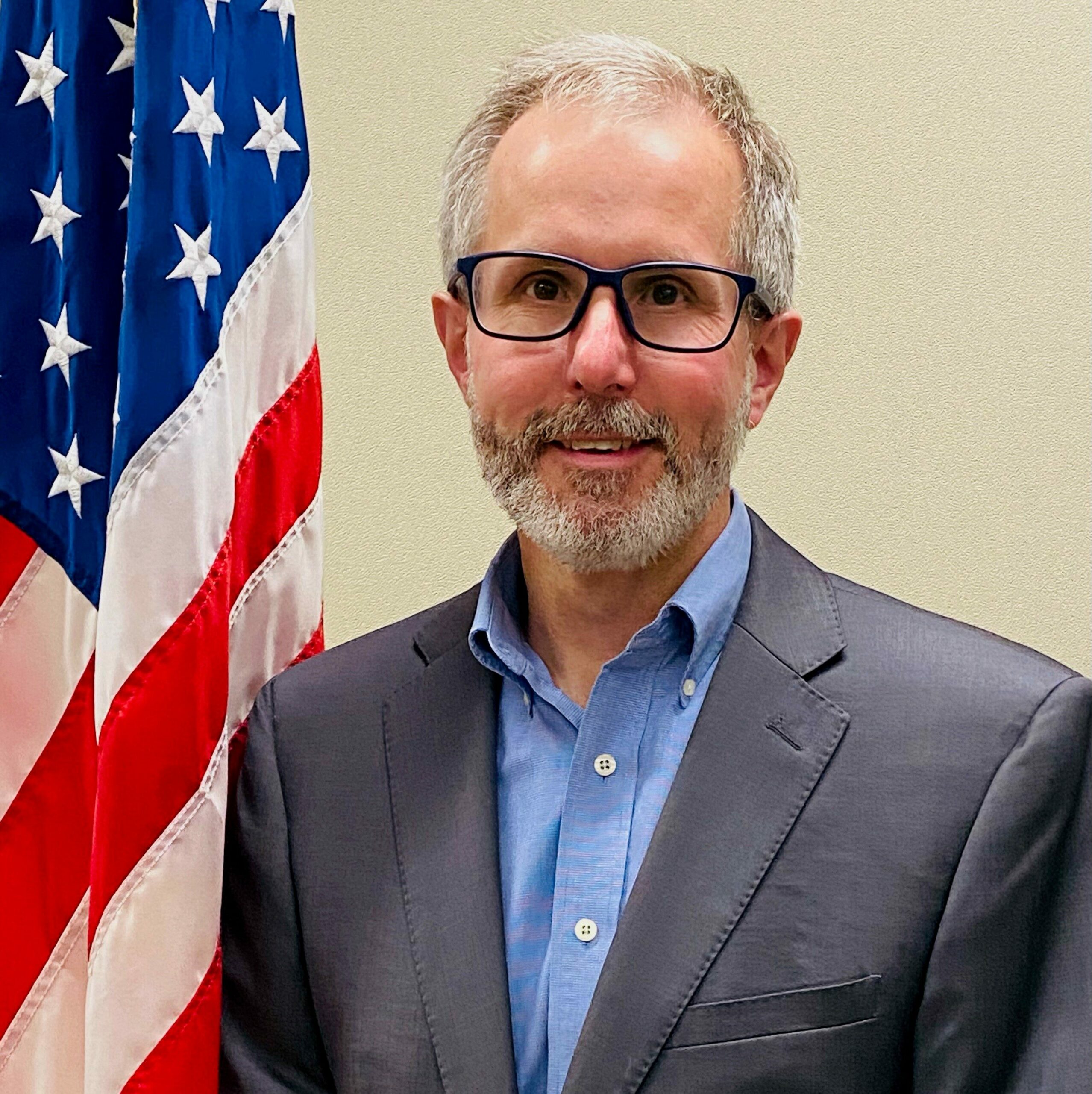
Kenneth Mall
Managing Director, Workforce Consulting
Ken has 26 years of leadership experience working with top-tier companies, labor organizations and government agencies. He has advised more than 65 government, workforce development, and economic development agencies at the state, regional, and levels local. At the state level he is currently advising the Michigan Department of Labor and Economic Opportunity, which oversees all the state’s workforce development programs.
He and other members of the EDSI team recently completed the first phase of a project with the New Jersey Department of Labor that included a review of all workforce development programs across the state. Ken has also provided advisory services for the Indiana Department of Workforce Development, the Pennsylvania Department of Labor and Industry, the Connecticut Department of Labor, and most recently workforce agencies in South Carolina, Chicago, Detroit, Jacksonville, Philadelphia, New York City, and Tallahassee.
Ken is nationally recognized for his workforce development expertise, speaking at NAWB and COABE annually, and several regional workforce development and economic development conferences each year.

Cathy R. Glover
Deputy Administrator, Single Family Housing
Cathy Glover has over 30 years of affordable housing finance experience. As Deputy Administrator, she provides nationwide leadership for USDA Single Family Housing Programs with a portfolio of one million home loans valued at $140 Billion. Cathy started her career in rural Illinois before moving to USDA Washington, DC headquarters office in 2004. She has served in varies rolls at headquarters, including Director of the Single Family Housing Direct Loan Programs (2014-2015), Assistant Deputy Administrator (2015-2020), and Executive Director, Single Family Guaranteed Loan Program (February – July 2020). Cathy was appointed Deputy Administrator, Single Family Housing in July 2020.
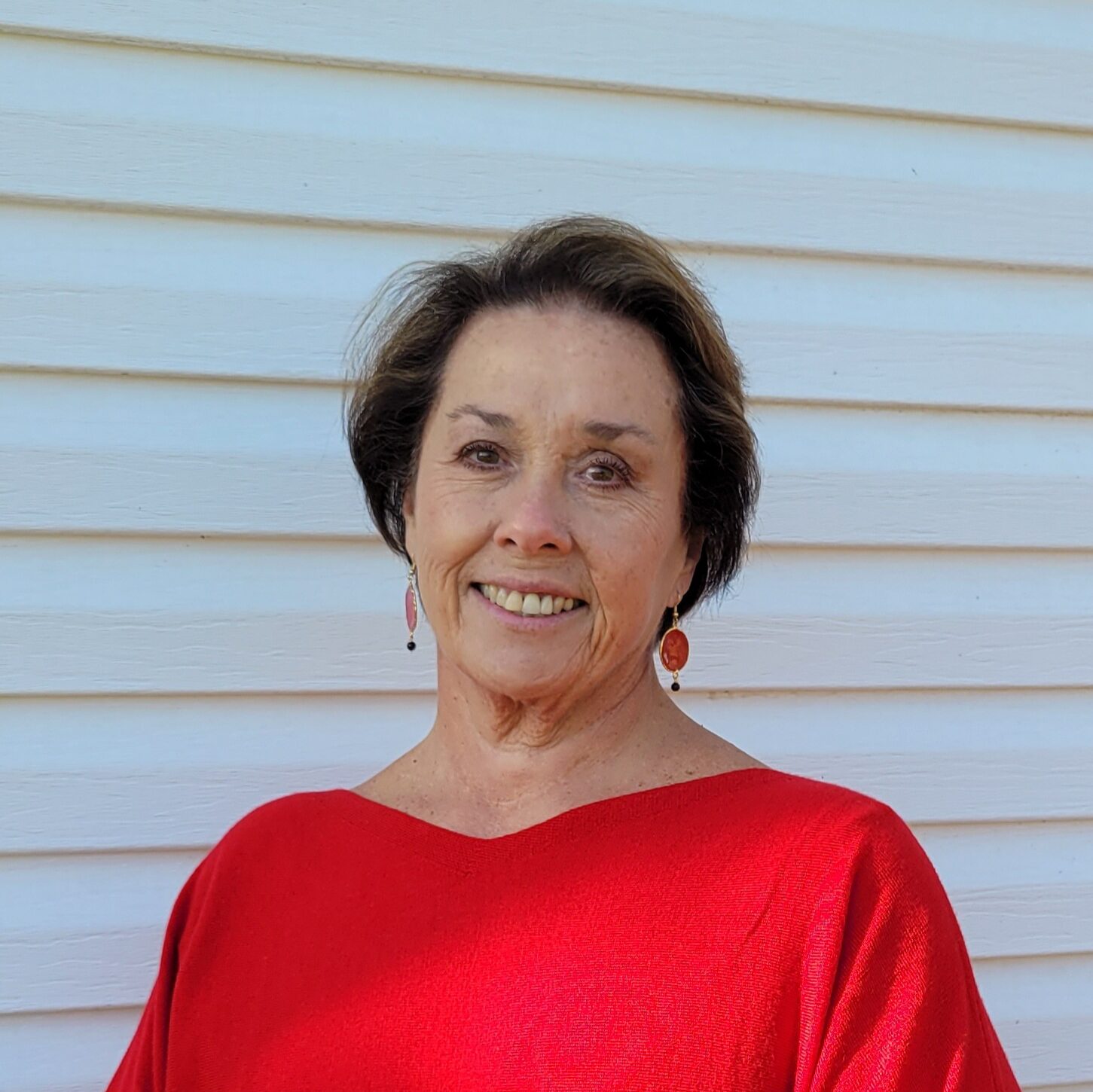
Lindy Turner
During 30 years of public service with USDA, Lindy had the great privilege of working with local leaders to form Clinch-Powell, a regional community development not-for profit focused on building strong communities, caring for people and protecting natural resources in East Tennessee. After retiring from federal service she stepped into the role of Executive Director in 2011.
Clinch-Powell Council is a well-respected not-for-profit entity with a diversified financial portfolio and workforce to support mission programming with an annual budget of nearly $6 million. Lindy has extensive experience in grant and project development with more than $50 million in grant awards that have in turn brought investment into the region of well over $300 million. Clinch-Powell programming
focuses on housing, lending, conservation, ecotourism and building community capacity. Its funding, by design, is as diverse as its programming.
Along the way Lindy was honored to receive the Public Service Award from the USDA Secretary of Agriculture, The Nature Conservancy Conservationist of the Year and the U.S. Forest Service National Crystal Award for Rural Community Action.
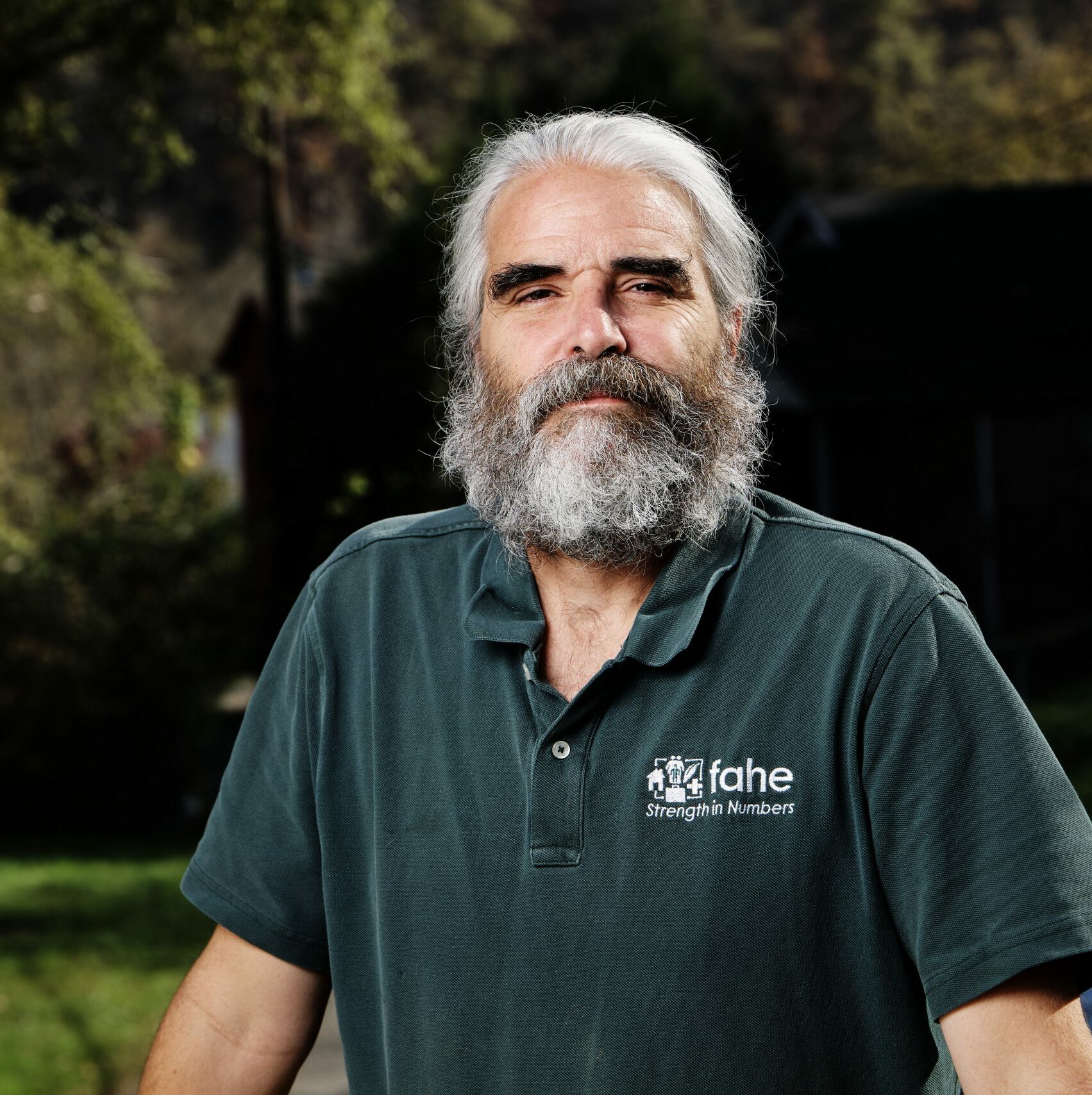
Scott McReynolds
The executive director of the Housing Development Alliance (HDA), a nonprofit affordable housing developer in Hazard, Ky., in 1994. Twenty-eight years later, he still leads the agency, which has grown from a staff of one to a staff of 31, with a full, highly experienced, and talented crew of carpenters that routinely builds 17 to 20 new homes for low-income families each year. Under his leadership, HDA has completed 330 new homes and over 900 home-preserving repairs for low-income homeowners across four counties (Breathitt, Knott, Leslie, and Perry – four of the poorest counties in the country), and it has developed 43 affordable rental units.

Duane Yoder
Duane Yoder serves as President of the Garrett County Community Action Committee (GCCAC) and has served in that position since 1980. Previously he was employed in similar roles in Southern and Eastern Maryland. His work has primarily focused on strategies that support low-income persons to gain economic security and improve their quality of life. He has served on numerous national and state commissions and boards.
During his tenure as President, Garrett County Community Action has emerged as one of the most successful rural community development corporations in Maryland and as a state leader in implementing innovative early childhood education and family development strategies.
GCCAC worked closely with the Annie E Casey Foundation and the Aspen Institute to implement a whole family approach in Garrett County and was designated along with the Human Resources Commission in Allegany County as one of ten Rural Impact sites in the U.S.to pilot a multi-Generation effort.
Duane has spent his adult life working on anti-poverty issues at the local community level. He received his Bachelor’s degree from Eastern Mennonite University and had done graduate work at the Universities of West Virginia and Maryland.
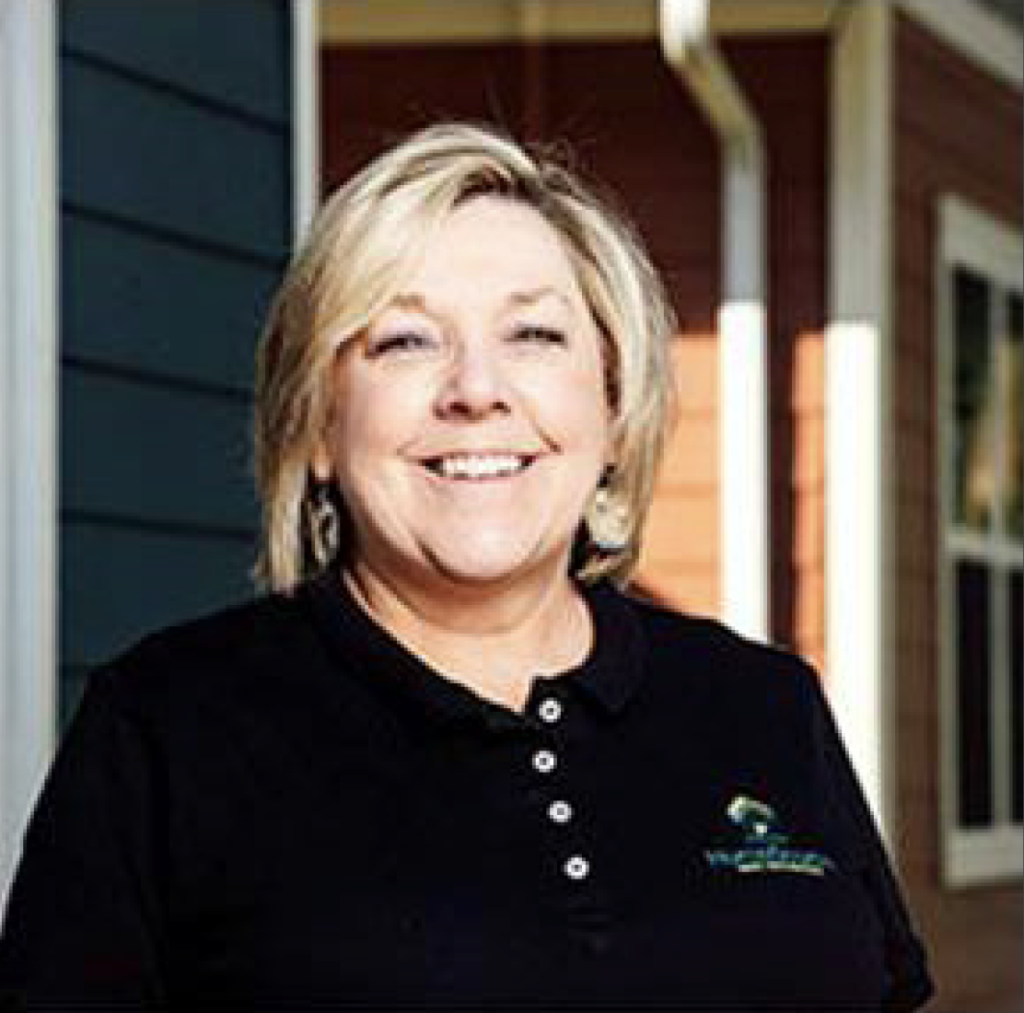
Jackie Mayo
Jackie Mayo serves as the President and CEO of HomeSource east tennessee. HomeSource east tennessee (HSET) provides affordable homeownership and rental housing opportunities, housing counseling, financial capability coaching and building performance guidance in Knox County and several surrounding East Tennessee counties. HSET excels at providing homes with increased energy efficiency and verifiable durability and healthy living benefits. HSET and Jackie have been part of collaborative efforts in the Appalachian region and in the State of Tennessee to bridge the gap between housing providers, social service organizations, government agencies and the health field to broaden the housing options for very low-income seniors and those with special needs – especially those coming out of institutional care. She believes that those who wish to live independently and have the ability to do so without risk to them should have quality and affordable options.

Dana K. Bezerra
Dana K. Bezerra is the president of Heron. Bezerra began her career in agriculture in California. Her family owned a dairy farm in the San Joaquin Valley, where she bore witness to the bankruptcy of a local creamery, the formation of an independent milk producers’ cooperative, and the provision of a local tax abatement package to a multinational food company. Those experiences left Bezerra with a lasting impression about the importance of social cohesion within a community — and the complicated relationship between communities and capital markets.
Bezerra proceeded to work at Merrill Lynch in the Private Banking & Investment Group, where she specialized in Philanthropy and Nonprofit Management. For the next decade, Bezerra managed client money, where she earned an appreciation for the nuances of intergenerational wealth and learned to navigate complex financial transactions and markets.
In 2006, Bezerra joined Heron. As a program officer, Bezerra engaged with nonprofit and community leaders who were operationalizing Heron’s mission on the ground in communities that had been waylaid by globalization, mechanization, and disintermediation. It became clear in that role that Heron’s responsibility was to feed the agency of local leaders by supporting them and their enterprises.
Over the next 10 years, Bezerra played a key role in rotating Heron’s entire portfolio (including debt, equity, and grants) to better reflect Heron’s mission. Bezerra became responsible for sourcing deals, identifying and developing relationships across a spectrum of investors, syndicating capital when possible, and cultivating opportunities to deploy the full range of Heron’s philanthropic and market-rate toolkit. As president, Bezerra hopes to build on Heron’s history and leverage the lessons it has learned over the past 25 years — both on the ground in communities and within the capital markets.
In addition to her role at Heron, Dana has been active in the leadership of several organizations over the last two decades, including the Board of Capshift, a privately held company focused on enabling impact investments from donor advised funds and foundations; the Board of TILT, a privately held mission aligned investment firm; the Duke Fuqua CASE i3 Advisors, a global program blending academic rigor with practical knowledge on the field of impact investing; and the Cal Poly President’s Council of Advisors, established to enhance the relationship between the University and its constituent communities including business, industry, agriculture and other institutions.
Bezerra has a Bachelor of Science in Agricultural Business and Public Policy from Cal Poly, San Luis Obispo.
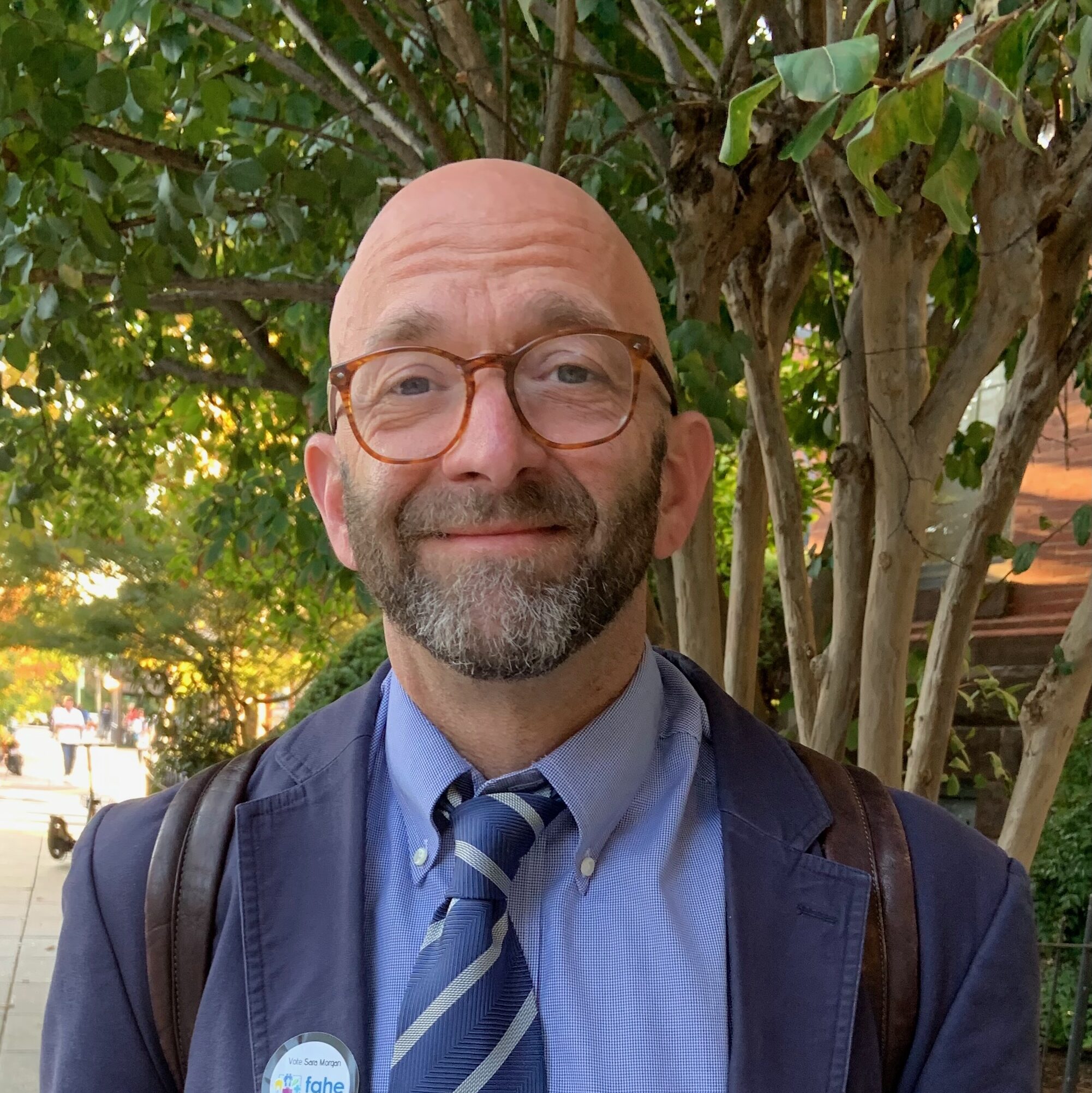
Justin Maxson
Justin Maxson is a Senior Fellow at the Amalgamated Foundation working on how disadvantaged communities can have more equitable access to public resources. He comes to this work after 18 months as Deputy Under Secretary for Rural Development at the US Department of Agriculture. Before that he was Chief Executive Officer at the Mary Reynolds Babcock Foundation for 6 years and President of the Mountain Association for 13 years. He has Anthropology degrees from the University of Kentucky and Boston University.
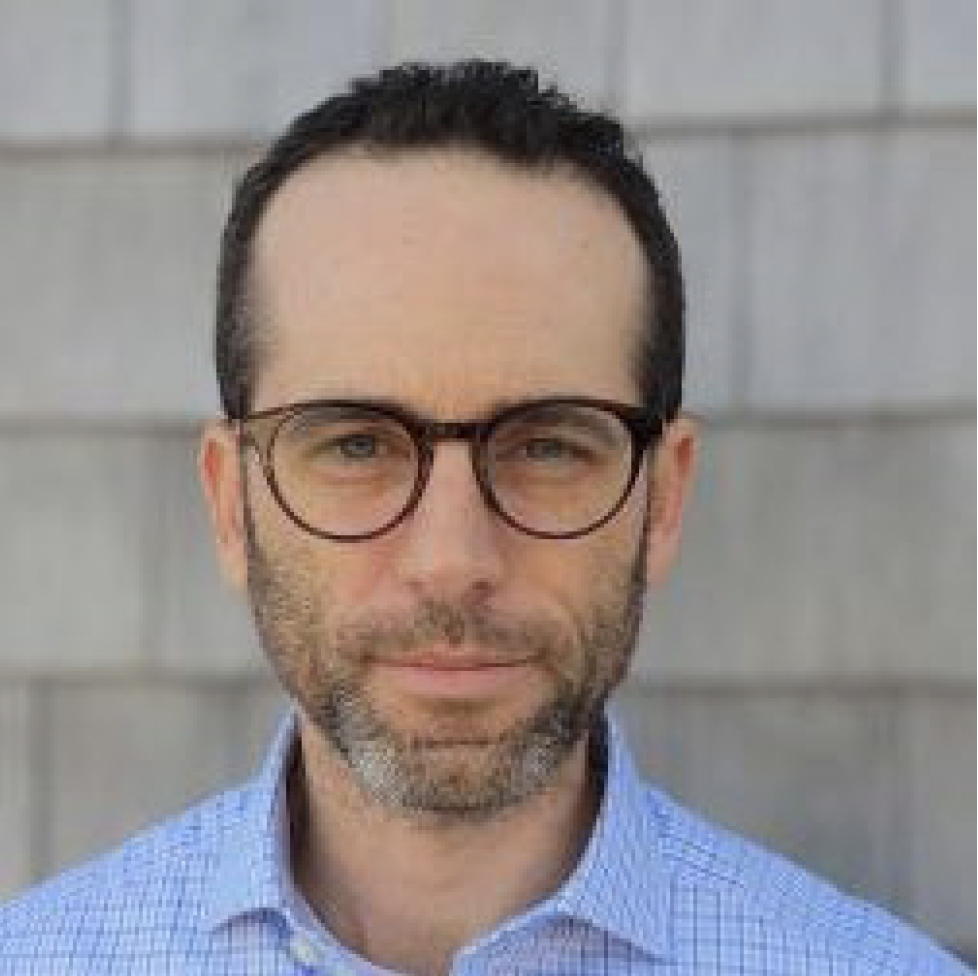
Brett Theodos
Brett Theodos is a senior fellow and director of the Community Economic Development Hub at the Urban Institute. His work focuses on economic and community development, neighborhood change, affordable homeownership, consumer finance, and program evaluation and learning. His research includes evaluations of the Economic Development Administration, New Markets Tax Credit, Small Business Administration loan and investment programs, Opportunity Zones, and the US Department of Housing and Urban Development’s Choice Neighborhoods, Community Development Block Grant, and Section 108 programs. He is studying how capital flows (or fails to flow) into communities, including the role of mission finance actors like community development financial institutions. He leads projects researching how entrepreneurs can access capital.
Theodos serves on the Board of the Center for Community Progress, the Douglass Community Land Trust, and the Housing Authority of Prince George’s County. Theodos received his BA from Northwestern University, MPP from Georgetown University, and PhD in public policy from George Washington University.
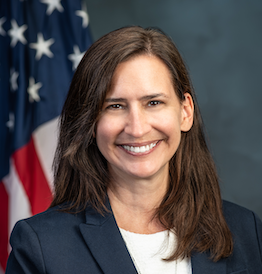
Robin Keegan
Robin is a sought-after policy thought leader and practitioner committed to transforming communities through proven strategies in resilience and economic equity. As the former Executive Director of the Louisiana Recovery Authority and Office of Community Development, and founder of Spring Industries, LLC, Robin is skilled in solving intractable problems through tactical knowledge of federal, state, and local policies and funding to create innovative and transformative strategies to rebuild and strengthen communities. Robin’s work is rooted in the fact that equitable and inclusive communities provide the strongest outcomes.
Robin has a history of designing successful strategies for multiple multi-billion-dollar responses to natural and human-caused disasters for communities for the states of Louisiana, New York, California and the United States Virgin Islands and other communities across the country. This includes programming more than $500 million in Community Development Block Grant Disaster Recovery funding in economic development programs that helped fishers, farmers and main street businesses rebuild and grow as well as plans to strengthen major industry sectors. Robin has overseen strategic economic planning efforts and was lead planner and author of ProsperityNOLA, the first comprehensive economic development strategy for the City of New Orleans and has designed innovative strategies to support small businesses throughout urban and rural communities. Currently, Robin supports multiple counties across the country to increase economic security through the CARES Act Coronavirus Relief Fund.
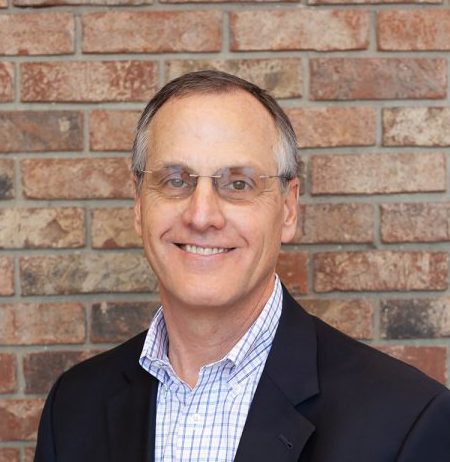
Chris Martin
Chris Martin brings more than 20 years of experience as President of Knoxville Leadership Foundation. KLF has founded and facilitated 19 initiatives with a focus on serving as a hub for promoting partnerships, empowering new programs and mobilizing community volunteers. Martin has also served on a multitude of nonprofit boards throughout East Tennessee.

